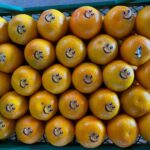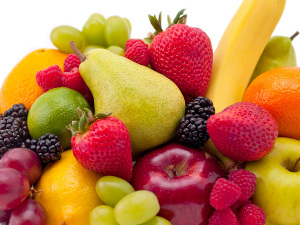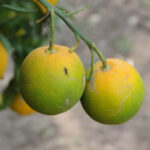South Africa launches second WTO dispute against EU citrus regulations

South Africa announced an official consultation with the European Union in the World Trade Organization (WTO) regarding the bloc’s phytosanitary trade regulations for citrus.
The country is working to find a “lasting solution” to the EU's stance on Citrus Black Spot (CBS), according to South Africa’s Department of Agriculture, Land Reform and Rural Development (DALRRD) and the Department of Trade, Industry and Competition (DTIC).
CBS is a fungal infection that can result in cosmetic blemishes on the affected fruit. However, the tighter regulations also seek to stop false codling moth from spreading.
This is the second time South Africa has challenged the EU’s regulations, which heavily impacted South African citrus exports to Europe in 2023. The first dispute complaint was launched in 2022.
The present action looks to “protect the livelihoods of tens of thousands of people in the local citrus industry,” an official South African government release stated.
The consultation was presented with the support of the Citrus Growers' Association of Southern Africa (CGA).
Related articles: South Africa gears up for winter crop following a difficult year
South Africa’s citrus sector first voiced concerns about the EU’s stricter import regulations for citrus coming from non-EU countries in June 2022.
In November last year, the Spanish Interprofessional Citrus organization (Intercitrus) reported a “record” 21 rejected South African imports due to black spotting.
Then in July 2023, two moth specimens were found in mandarin and grapefruit containers coming from South Africa. Another three were confirmed in orange and mandarin shipments in 2022.
For this reason, the EU has continued to enforce measures on South African citrus growers. These involve a detailed spray program and inspections at orchards and packhouses.
Intercitrus President Inmaculada Sanfeliu said, in an August 2023 release, the current regulations "are insufficient for the main non-EU citrus supplier to the EU to stop exporting this dangerous pest."
What do the regulations say?
According to the International Institute of Refrigeration (IIR), citrus imports to the EU from non-EU countries require pre-cooling to 41°F at origin and cold treatment in transit at 30°F to 35.6°F degrees for 25 days.
Since 2023, exporters have had two options: either cold treatment between 30°F and 32°F for 16 days or between 30°F and 35.6°F for 20 days. In both cases, operators will be required to pre-cool at 32°F and 35.6°F, respectively.
The CGA stated that black spotting is more of a “cosmetic problem” and has referred to EU measures as “ unfair and discriminatory.”
The EU citrus market currently sustains a total of 70,000 jobs in South Africa, generating about $800 million annually in annual export earnings, according to the CGA.













































